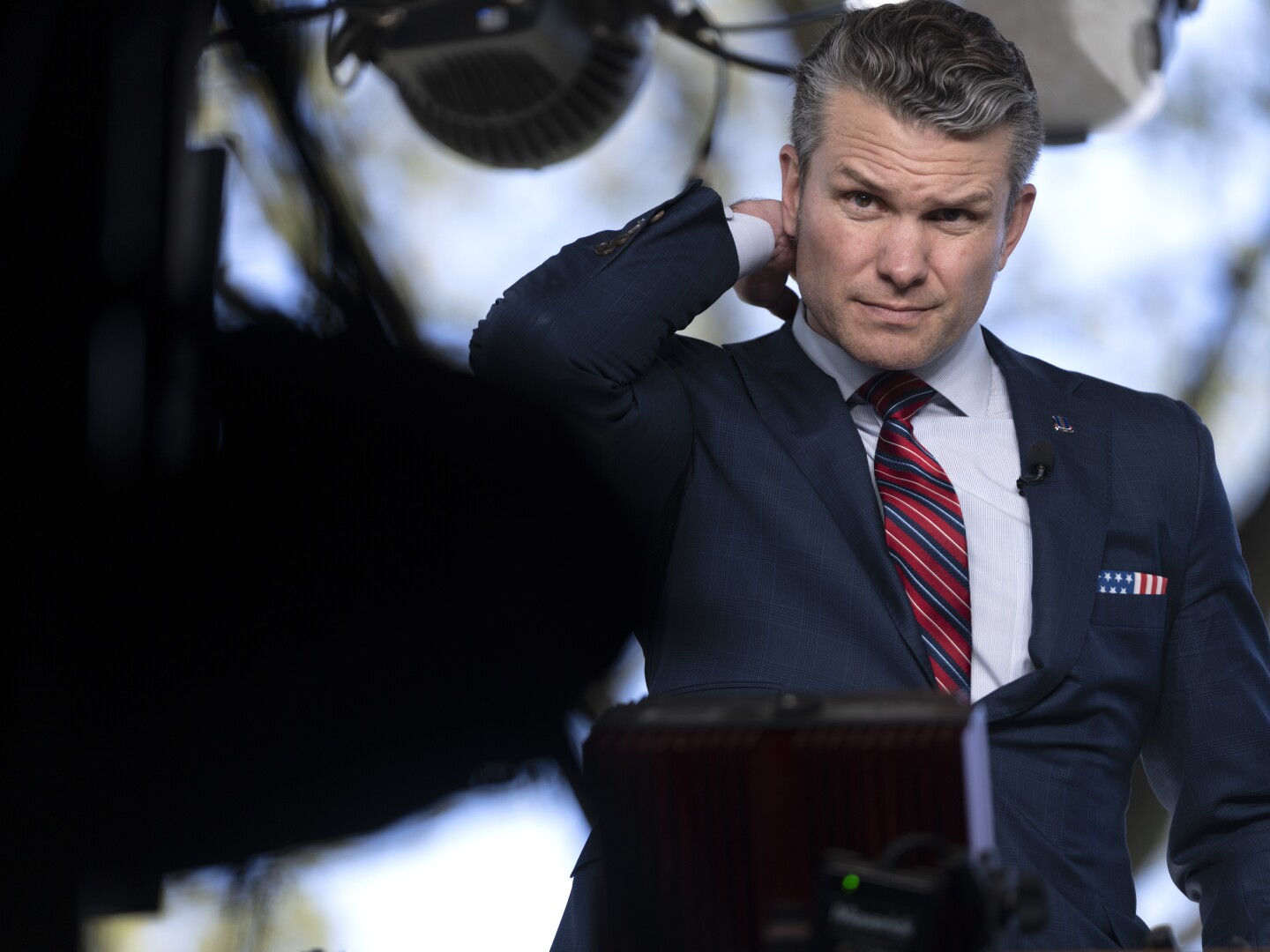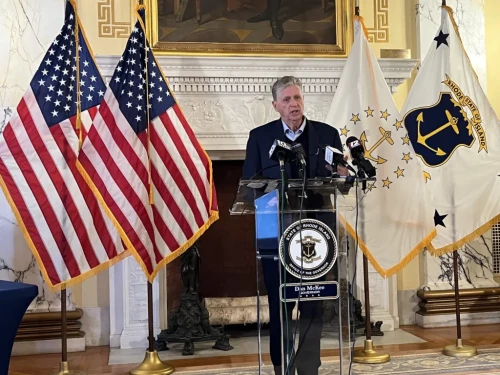President Trump defended the use of troops in U.S. cities while Defense Secretary Pete Hegseth told military commanders about new physical fitness and grooming requirements for uniformed personnel.
AILSA CHANG, HOST:
President Trump told hundreds of top military commanders this morning that the U.S. military would be used against the, quote, “enemy from within.” He pointed to Democratic-run cities, which he has long said are dangerous because of high crime rates. And Trump said this...
(SOUNDBITE OF ARCHIVED RECORDING)
PRESIDENT DONALD TRUMP: Together, we’re reawakening the warrior spirit, and this is a spirit that won and built this nation. And from the cavalry that tamed the Great Plains to the ferocious unyielding power of Patton, Bradley and the great General Douglas MacArthur. These are all great men.
CHANG: Now, that echoes language often used by Defense Secretary Pete Hegseth, who also spoke to the generals and admirals in Quantico, Virginia, today. Hegseth reiterated that the purpose of the department that he leads would exclusively be, quote, “war fighting.” Joining us now to talk about all of this is NPR Pentagon correspondent Tom Bowman. Hi, Tom.
TOM BOWMAN, BYLINE: Hey, Ailsa.
CHANG: OK, so before we get to the president, what stood out to you about the remarks from Hegseth?
BOWMAN: I guess what he said about toughening physical fitness standards for those in combat jobs. We’re talking armor, artillery, infantry. And he said he wants men and women to achieve, quote, “the highest male standard” in such things as, you know, lifting weights, dragging a sled that stands in for a wounded comrade, carrying an ammo box, running. So in general, more weight, more pullups, faster times.
CHANG: OK.
BOWMAN: Now, there are some 600 female Marines in those jobs, roughly 3,000, 4,000 Army women in combat jobs. One Marine officer I spoke with who’s well-versed on fitness tests estimated you could lose more than 20% of women in those jobs if they have to meet the highest male standard. The officer spoke on condition of anonymity because he’s not authorized to speak publicly. Hegseth said, listen, that is not my goal. Let’s listen.
(SOUNDBITE OF ARCHIVED RECORDING)
PETE HEGSETH: If women can make it, excellent. If not, it is what it is. If that means no women qualify for some combat jobs, so be it. That is not the intent, but it could be the result. So be it.
BOWMAN: Now, Hegseth also said, Ailsa, it may mean weak men don’t qualify.
CHANG: Sure. OK, another thing. Hegseth has long criticized what he views as the Pentagon’s, quote-unquote, “woke culture.” What did he say about that today?
BOWMAN: Right, he said the Pentagon was the department of woke, and now it’s the department of war. He said he’s ending the war on warriors and saying that some were promoted for their race or gender, and those in the military will be promoted on merit. Of course, he fired the Joint Chiefs Chairman General C.Q. Brown - the second African American to hold the job - indicating he got the job not on merit. Even though Brown was a key figure in the defeat of the Islamic state, which happened during President Trump’s first term, and Trump keeps bragging about that.
Now, Hegseth also thinks, overall, the military has not been tough enough. Too many lawyers second-guessing troops on rules of engagement in war or bullying and hazing of troops. He also wants drill sergeants to be much more tough on recruits.
CHANG: OK. Moving on to President Trump, whom I know has spoken then defended his use of U.S. troops in American cities. What exactly did he say about that?
BOWMAN: Well, Trump said he told Defense Secretary Hegseth that the U.S. should use some of these dangerous cities as training grounds for our military, saying mostly Democratic-run cities have high crime rates. Of course, the president is sending troops to Portland, Oregon, and Chicago, taking control of those Guard troops from the state governor. Now, Trump’s comments were denounced by Senator Jack Reed of Rhode Island, top Democrat in Armed Services and an Army veteran. He called it dangerous treating our own communities as war zones and our own citizens as enemies.
CHANG: Well, let me ask you, Tom, I mean, how woke do you think the military is?
BOWMAN: You know, I think it’s mostly a caricature. People I’ve spent time with in combat zones tell me, listen, we’ve always had a warrior ethos. I don’t know what this is about.
CHANG: That is NPR’s Tom Bowman. Thank you, Tom.
BOWMAN: You’re welcome.







